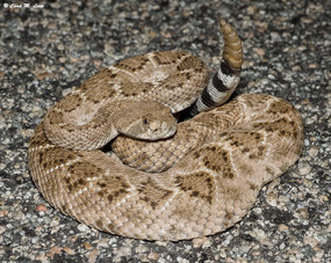
Dr Becker
Rattlesnake Vaccine-do you give it or not? That's the high risk question.
Here is a snippet from an article by Dr Becker speaking with Dr Shultz:
How Does the Rattlesnake Vaccine Work, and Is It Effective?
Dr. Schultz explained that the rattlesnake vaccine is actually an aid to prevent death in the event an animal is bitten by a specific type of rattlesnake. He says it does have value in that it can keep an animal bitten by a Western diamondback rattlesnake alive. But he cautions that when the vaccine is used, it’s important for pet owners to know their dog must still be treated for snake bite for two reasons. One, the snake may not have been a Western diamondback rattlesnake, in which case the vaccine offers no protection. Two, the vaccine in most cases will not prevent the venom from causing disease. What the vaccine does is buy time to get the animal treated, and it seems to work well in that regard.
Rattlesnake Vaccine-do you give it or not? That's the high risk question.
Here is a snippet from an article by Dr Becker speaking with Dr Shultz:
How Does the Rattlesnake Vaccine Work, and Is It Effective?
Dr. Schultz explained that the rattlesnake vaccine is actually an aid to prevent death in the event an animal is bitten by a specific type of rattlesnake. He says it does have value in that it can keep an animal bitten by a Western diamondback rattlesnake alive. But he cautions that when the vaccine is used, it’s important for pet owners to know their dog must still be treated for snake bite for two reasons. One, the snake may not have been a Western diamondback rattlesnake, in which case the vaccine offers no protection. Two, the vaccine in most cases will not prevent the venom from causing disease. What the vaccine does is buy time to get the animal treated, and it seems to work well in that regard.
I asked Dr. Schultz if he has concerns about the adjuvant used in the rattlesnake vaccine causing a reaction. He replied that unfortunately, nobody knows very much about the vaccine and in his opinion, it hasn’t been adequately tested. Most of the tests were done with rabbits, mice and other species, but not dogs. It should be tested in dogs. There’s just not a lot of research on this particular vaccine.
I found a heartfelt blog post from a dog owner whose dog developed AIHA, Autoimmune Hemolytic Anemia, after receiving one dose of the rattlesnake vaccine. Her veterinarian felt the AIHA was caused by the vaccine. The owners took the dog to a specialist, who advised that the rattlesnake vaccine caused the dog’s white blood cells to attack the red blood cells, killing the red blood cells, which caused the anemia.[6] In an email discussion with her, she said that her dog has since died, and she has received emails from many dog owners about their dogs being sickened and killed after receiving the rattlesnake vaccine. Her dog’s illness and demise after receiving the rattlesnake vaccine is not an isolated case.
By Carole Milligan, A.C.A.N. graduate and Certified Carnivore Nutrition Health Coach
A recent post on my local community Facebook page shared a homeowner’s encounter with a rattlesnake in her backyard. In her post, she encouraged everyone reading the post to make sure their dogs get the rattlesnake vaccine. Most responses to her suggestion were from dog owners who said they were going to get their dogs vaccinated.
My first thought on reading this was, how can there be a “vaccine” for rattlesnake bite?
Vaccine theory posits that injecting a killed or weakened germ into the body will stimulate the immune system to produce antibodies, as if the body had been infected with a disease. The vaccine is supposed to mimic a natural infection, without actually causing an infection.
A recent post on my local community Facebook page shared a homeowner’s encounter with a rattlesnake in her backyard. In her post, she encouraged everyone reading the post to make sure their dogs get the rattlesnake vaccine. Most responses to her suggestion were from dog owners who said they were going to get their dogs vaccinated.
My first thought on reading this was, how can there be a “vaccine” for rattlesnake bite?
Vaccine theory posits that injecting a killed or weakened germ into the body will stimulate the immune system to produce antibodies, as if the body had been infected with a disease. The vaccine is supposed to mimic a natural infection, without actually causing an infection.
|
However, a rattlesnake bite is not an infection. A bite from a venomous snake puts a toxin into the body. How can there be a vaccine against a rattlesnake bite?
If you know me, you know that was all that was needed to get me going. Being the curious person that I am, I hoisted my sails and set off on a internet voyage of investigation and discovery. |
Vaccines are supposed to stimulate the immune system to create antibodies against antigens. Antigens are defined as any substance that causes the immune system to produce antibodies against it. Using that definition, snake venom is considered an antigen, which is why the rattlesnake shot can be called a vaccine. Read more in her complete article on these vaccines before you decide!! Go to her website here...















